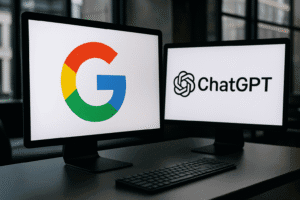If you’re running a small business or freelancing in the UK, understanding what you can claim as business expenses can make a huge difference when it comes to your tax bill. The good news? You can claim a wide range of costs that are “wholly and exclusively” for business purposes.
Whether you’re a sole trader or running a limited company, this guide breaks down the most common allowable expenses—clearly and simply.
✅ What Counts as a Business Expense?
In HMRC’s eyes, a business expense must be essential to your work—not personal. If something is used for both business and personal purposes, you can usually only claim the business portion.
📌 Common Expenses You Can Claim
Here are some of the most typical costs small business owners can deduct:
1.
Office Costs
Rent (if you rent office space)
Utilities (e.g., electricity, water)
Internet and phone bills (business portion)
Stationery and postage
Office furniture (desks, chairs)
2.
Working from Home
If you work from home, you can claim a portion of:
Heating, electricity, water
Council tax
Rent or mortgage interest
Internet
🧮 HMRC allows a simplified flat rate depending on hours worked from home—or you can calculate actual costs proportionally.
3.
Travel Costs
Business travel (train, bus, flights)
Fuel and mileage (45p/mile for first 10,000 miles, then 25p)
Parking fees
Accommodation (if staying overnight for work)
Meals (if you’re staying away from home)
🚫 Not allowed: commuting from home to your usual workplace.
4.
Marketing and Advertising
Website hosting
Logo design and branding
Paid ads (Google, Facebook, etc.)
Business cards, flyers
Social media tools
5.
Software and Subscriptions
Adobe, Canva, Notion, Microsoft 365
Project management tools (e.g. Trello, Asana)
CRM systems
6.
Professional Services
Accountant or bookkeeper fees
Legal advice
Business coaching or consulting
7.
Training and Education
Courses, books, or subscriptions that help you improve your business skills
✔ Must be related to your current business—not for starting a new trade.
8.
Equipment and Tools
Laptop or desktop
Camera, microphone, phone
Specialist tools related to your industry
You might claim these as capital allowances if they’re long-term assets.
9.
Insurance
Public liability insurance
Professional indemnity insurance
Business equipment insurance
10.
Banking and Finance
Business bank account fees
Interest on business loans or overdrafts
Payment processing fees (Stripe, PayPal, etc.)
⚠️ What You
Can’t
Claim
Some things are always off-limits:
Personal expenses
Client entertainment (e.g., taking them out to dinner)
Fines or penalties
Clothing (unless it’s a uniform or protective gear)
📋 Keep Good Records
Always keep receipts, invoices, and records of every expense. You don’t need to submit them with your tax return, but HMRC can ask for proof at any time.
Digital tools like QuickBooks, Xero, or even Notion and Google Drive can make record-keeping simple.
🧠 Final Thoughts
Understanding what you can (and can’t) claim helps you:
Pay less tax legally
Keep your finances organised
Make better business decisions
It might feel overwhelming at first, but once you get used to tracking your expenses, it becomes second nature.





